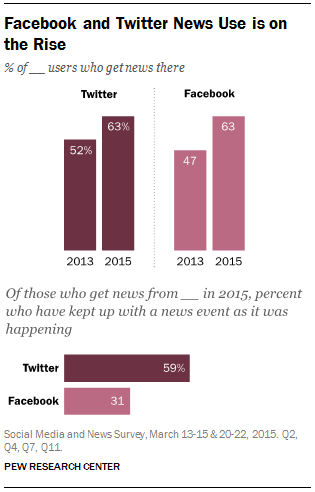Diesel eBooks Reopens as White-Label Bookstore Provider


And now it is back. Diesel eBooks has quietly relaunched as Diesel Digital, a white-label ebookstore provider.
If you’re crazy enough to get into a market where the largest suppliers won’t let you compete on price, then Diesel Digital is here to help. Drawing on its years of experience as an ebook retailer, Diesel will build you a fully-loaded,
branded, custom-built ebookstore.
Everything from the backend to the webpage can be built to order, and Diesel is prepared to craft every part, including catalog management, an optional rewards program, administrative tools, etc. You can even use their platform to sell physical good alongside the digital.
The one component Diesel might not be able to provide are reading apps, and for those you will need to go to another company like Bluefire. (There’s no mention of the apps on the website, but it is still under construction.) I find it a little odd that Diesel Digital doesn’t mention reading apps; its competitors (like PageFoundry) can provide the apps as well as the ebookstore.
Thanks, M, for the tip!
image by xdxd_vs_xdxd


Comments
Gary January 6, 2016 um 8:57 pm
This does not seem to be directed towards potential new competitors to Amazon, Kobo, or Barnes & Noble, who might plan to sell all books, by all publishers, to all customers.
Instead it seems to be directed towards small to medium sized independent publishers who want to sell their own books directly to their own customers. Such a publisher would not intend to sell the most recent best sellers by the big five. Instead, they would operate more like the Harlequin ebook store did before Harlequin was taken over and the new owners closed the eBook store.
I hope that Diesel Digital succeeds, and that many such small to medium publishers open their own stores.
I buy Baen eBooks directly from the Baen Books site because I want to support that company, and I would rather that they get the full value of selling an eBook rather than having to give a cut to Amazon, Google, Kobo, or Barnes & Noble. If other publishers open their own stores I will buy from them as well, if I want to read their books. I certainly hope that Open Road, for example, would open their own store.
Perhaps we will be lucky and these new eBook stores, owned by independent publishers, will not put DRM on their books, and won’t set arbitrary high prices for eBooks to try to support the bricks and mortar retail chain.
Hrafn January 6, 2016 um 10:14 pm
I would agree with Gary, and raise a couple more points:
These smaller publishers are more likely to be servicing niche markets, so are more likely to have readers loyal to multiple authors in their portfolio, and so more likely to be in a position to use this to build some brand loyalty of their own, and earn priority in readers' new author discovery. This has certainly been my own experience with Baen.
It provides not only economic disintermediation (Amazon et al’s cut), but also informational disintermediation, in that the publisher gets to see the reader’s buying habits first hand, rather than relying on retailers' summaries.
I think this will not only benefit the publishers but also the readers. I’m also hoping that if this starts to work, it will slow down the swallowing of smaller publishers and imprints into bland corporate behemoths.
Nate Hoffelder January 6, 2016 um 11:32 pm
The problem with suggesting that publishers open their own stores is that consumers don’t want to visit those stores. Baen showed us this when they started distributing to the Kindle Store and other stores.
fjtorres January 7, 2016 um 12:56 am
There have also been closures of niche ebookstores aimed at the Christian fiction market and the LGBT market. Hard to argue those didn’t serve a distinct niche with author loyalty.
One result of the price fixing conspiracy that gets ignored most of the time is that it led directly to the current walled garden ebookstores by killing off interoperable epub in NorthAm by fostering the near-cost pricing of ereaders which foreclosed the market to generic ereaders. Without generic epubpub readers there isn’t much room for generic stores or niche stores. Hasn’t been for five years. Little has changed on either front. Apps alone just don’t do it.
Hrafn January 7, 2016 um 11:19 am
Yet Baen still maintains their own ebook store, rather than selling *purely* through Amazon et al. Surely that suggests that there is some economic benefit to doing so. And if White-Label providers like Diesel reduce the cost of having such a store, by spreading the development costs, then that’s likely to make such a hybridised business plan viable for more smaller publishers.
KS Augustin January 7, 2016 um 10:31 pm
I’m curious about how something like this will compete with a lot of in-page widgets, like that released by Gumroad, to name one. Most SMPs (small to medium publishers) already have a website. Do they need another site to manage?
I ask this because we had a Limited Run webfront, just as a one-year exercise, to see how we felt about having a dedicated outlet. I think the idea can be sound for publishers bigger than us but, for us, with a 20-book fiction catalogue, it was a bust and, if we had to do it again (and we just might), I might opt instead for in-page widgets, with someone else handling the payment processing. That way I have total control and, if Diesel (or whomever) goes bust again, I’m not at risk at losing anything. To put it another way, I’d rather have the traffic guided to my own domain, which I pay for, rather than someone else’s that’s out of my control. Five years ago, I would’ve jumped at a solution like this. Today, not so much.